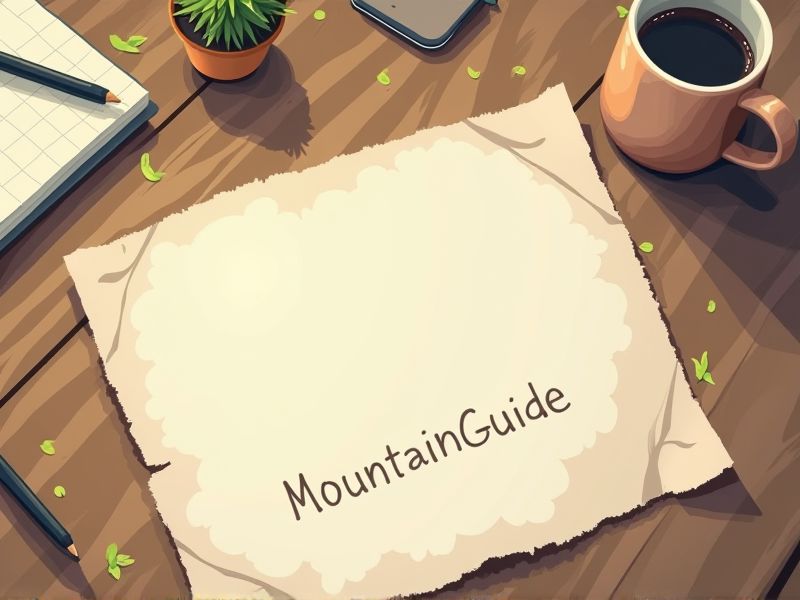
Mountain guides operate in highly unpredictable and hazardous environments, which necessitates possessing specific certifications to ensure safety and competence. These certifications verify that guides have the necessary skills in navigation, first aid, and risk assessment, crucial for leading groups in mountainous terrain. Without proper accreditation, the likelihood of accidents and incidents increases, jeopardizing both the clients and the guide. Some important certifications for mountain guides include Wilderness First Responder, Avalanche Safety Training, and Mountaineering Instructor Certificate.
IFMGA/ UIAGM Mountain Guide Certification
The IFMGA/UIAGM Mountain Guide Certification establishes a standardized level of competence, ensuring guides possess the necessary skills for safety. This certification fosters global recognition, allowing guides to work internationally without restrictions. It enhances trust between clients and guides, as it signifies adherence to rigorous training and assessment. Possessing this certification often increases professional opportunities, as many organizations and clients prefer certified guides.
Wilderness First Responder (WFR) Certification
Mountain environments present unpredictable hazards, requiring guides with Wilderness First Responder (WFR) Certification to manage medical emergencies effectively. This certification equips guides with advanced skills to stabilize injuries and illnesses unique to remote areas, where timely medical assistance may not be available. Risk mitigation in wilderness settings improves when guides hold a WFR, ensuring better decision-making under pressure. Clients gain confidence knowing their guide possesses comprehensive emergency response training tailored to mountainous terrains.
Avalanche Safety Certification (e.g., AIARE Level 1)
Mountain guides with Avalanche Safety Certification, like AIARE Level 1, understand avalanche risk assessments, which reduces the likelihood of accidents. This certification ensures guides possess skills to interpret snowpack and weather conditions accurately, critical for safe decision-making. It equips them to effectively educate and lead groups in mountainous terrain, enhancing the safety of everyone involved. Certification promotes trust among clients by demonstrating the guide's commitment to maintaining high safety standards.
CPR and First Aid Certification
Mountain guides face unpredictable risks, making CPR and First Aid Certification essential for responding effectively to medical emergencies in remote locations. Harsh terrains increase the likelihood of injuries, so being equipped with first aid skills is necessary to stabilize accidents until professional help arrives. Sudden weather changes or altitude-related illnesses can put clients in danger, necessitating immediate and informed intervention. Having this certification not only ensures client safety but also enhances the guide's credibility and trustworthiness.
Rock Climbing Instructor Certification
Certification as a rock climbing instructor ensures that a mountain guide possesses the necessary technical skills to safely navigate challenging terrains. It validates their ability to assess and mitigate risks associated with climbing activities. Clients can trust certified guides to provide a structured and secure climbing experience, reducing potential liabilities. Accredited training often enhances a guide's proficiency in emergency response and rescue operations.
Ice Climbing Certification
Ice climbing certification ensures that a mountain guide possesses the technical skills necessary for safe passage on ice terrains. It instills confidence in clients, knowing that their guide has met industry-recognized safety standards. The certification process often involves training in rescue techniques, crucial if an emergency arises. Without this certification, guides might lack the essential knowledge to handle complex icy environments, increasing the risk of accidents.
Backcountry Skiing Certification
Backcountry skiing certification equips mountain guides with the necessary skills to navigate remote and challenging terrains safely. It ensures that guides possess the knowledge to manage avalanche risks and understand snowpack conditions. Such certification enhances the credibility of guides, giving clients confidence in their expertise and decision-making abilities. It also standardizes the industry by ensuring that all certified guides meet a specific level of proficiency and safety awareness.
Mountain Rescue Technician Certification
Mountain Rescue Technician Certification equips mountain guides with essential skills in emergency response, crucial for ensuring safety during unforeseen incidents. The certification provides knowledge in specialized areas such as high-angle rescue and first aid, which are vital in mountain environments. Mountain guides gain credibility and trust from clients knowing they are prepared for emergencies. Insurance and regulatory bodies often require this certification to verify a guide's competence and reduce liability risks.
Outdoor Leadership Certification
Acquiring an Outdoor Leadership Certification ensures that mountain guides possess the necessary skills to manage potential risks and safety hazards in challenging terrains. This certification often incorporates wilderness first aid training, essential for handling emergencies that may arise in remote locations. It also provides mountain guides with knowledge on sustainable environmental practices, minimizing human impact on fragile ecosystems. Employers and clients are more likely to trust guides with formal certifications, fostering a sense of reliability and professionalism.
Navigation and GPS Proficiency Certification
Mountain terrain presents unpredictable and challenging conditions that demand precise navigation skills. Obtaining a Navigation and GPS Proficiency Certification ensures that guides can competently use modern tools to enhance safety and efficiency. This certification reduces the risk of getting lost, which can have severe consequences in remote areas. Certified guides reassure clients of their expertise, thus increasing trust and potential business.
Summary
When you hire a certified mountain guide, you can expect increased safety during your expedition due to their advanced training. Certification ensures guides possess the necessary skills to handle unforeseen challenges and emergencies. Certified guides are often more knowledgeable about the local terrain and weather patterns, enhancing your overall experience. Trust and confidence in your guide grow as their certification demonstrates a commitment to professional standards and continuous learning.
